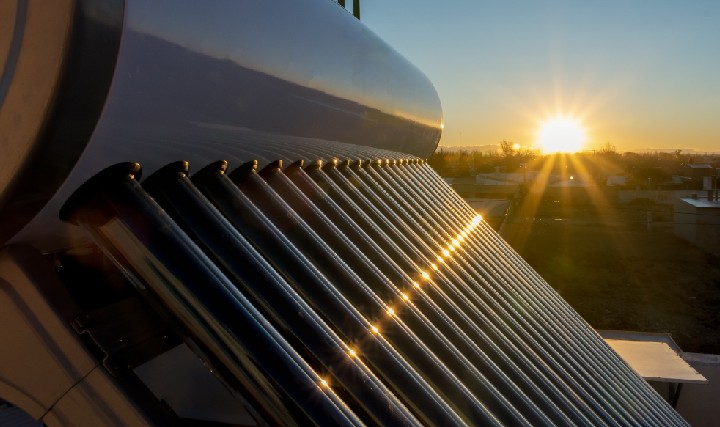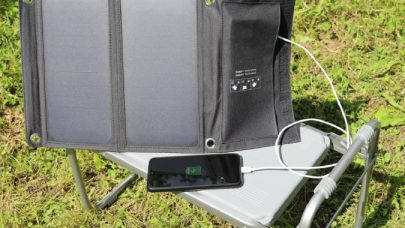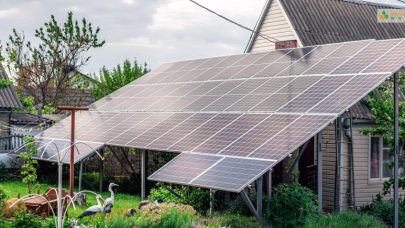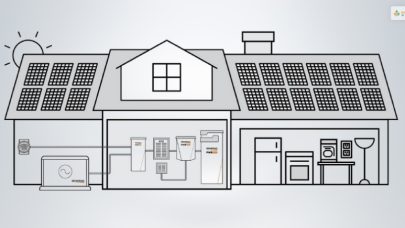Solar water heaters are a cost-effective and eco-friendly solution to create hot water for your home requirements. How so? The heaters are fueled by the sun’s limitless energy. Hot solar water systems are designed to function in almost any environment since they use the sun as an energy source.
According to the US Department of Energy, heating expenditures account for little less than half of a typical household’s power bill. As a result, it is the most expensive component of your charge. Solar hot water heaters assist in minimizing this cost by reducing the amount of grid electricity required to create significant amounts of hot water.
How Are Solar Water Heaters Different From Conventional Water Heaters?
Traditional water heaters are powered by your home’s power supply. On the other hand, solar panel water heaters use solar energy to gather energy straight from the sun. This type of technology lowers your reliance on the power grid. This allows you to save money while also saving non-renewable energy sources for the betterment of the earth.
Solar power water heaters are a self-contained device that does not require the installation of costly solar panels. Panels generate power for your house, while water heaters only generate hot water for your requirements. You can use the solar water heaters in combination with panels or on their own.
How Does A Solar Water Heater Work? What Are Its Types?
A solar water heater typically consists of two parts: a solar collector and a storage tank. The solar power water heaters are classified as active and passive based on whether or not they have circulating pumps.
1: Active Solar Water Heaters
Pumps move water from the collectors into the residence in active solar water heaters. Such devices are beneficial in places where the temperatures do not drop below the freezing point. Pumps in active solar water heaters circulate a no-freeze heat-transfer fluid between solar collectors and a heat exchanger. The exchanger warms the water and transports it into the house. Thus, the devices operate best in locations where freezing temperatures occur often.
2: Passive Solar Water Heaters
Compared to active systems, passive solar water heaters are less costly, long-lasting, and more dependable. However, when compared to active systems, passive systems are less efficient also. Integral collector-storage passive systems perform well in households that require a large volume of hot water during the day. Here, the collector must be put beneath the storage tank, as this sort of solar panel hot water necessitates skilled installation. When warm water rises to the top of the tank, and cold water descends to the bottom, this design mechanism allows water to flow through.
Overview Of Solar Storage Collectors And Tanks
The majority of solar water heating systems provide enough hot water to meet an entire family’s demands. However, on some days, sunlight gathering may be less intense. In such cases, a backup energy storage system is needed. Passive systems often include a tankless heater as a backup for such days. The energy source is powered by either electricity or gas.
A well-insulated storage tank is an essential component of solar panels hot water systems. You can also use solar power inverters to charge the water heaters. In designs with only one tank, the same tank acts as a solar storage unit and a backup heater. The water in two-tank systems is heated and then moved to the other tank, which functions similarly to a typical water heater.
There are three primary types of solar collectors used in home systems. There are three types of solar collectors: flat-plate collectors, integral-collector storage systems, and evacuated-tube collectors.
| Flat Plate Collectors | Integral Collector Storage System | Evacuated Tube Solar Collectors |
| 1. In the household sector, flat-plate collectors are the most prevalent.
2. This collector is made out of a weather-proof and insulated box with a dark absorber panel. 3. Insulation is critical because it prevents heat loss in the system. In addition, the absorber guarantees maximal absorption of solar heat energy. |
1. These solar collectors are transparent and insulated containers that accommodate one or more tubes.
2. The solar collector takes cold water and warms it up. The water is subsequently transported to standard water heating units. 3. This type of collector must be installed only in locations that experience mild freezing. |
1. They have a few numbers of sealed glass tubes with thermal conductive pipes inside.
2. Evacuated-tube Solar collectors are made up of rows of parallel rows of transparent glass tubes. 3. Each tube has a metal outer tube and absorber and a fin covered with a solar energy-absorbing substance. |
How To Choose The Perfect Solar Water Heaters?
It is tough to select one of the many various types of hot water solar heaters. So, how do you choose the best one for your needs? The first step is to consider your household’s demands before moving on to the selection. Here are some tips to help you make your decision;
- If you do not suffer below freezing conditions, go for a direct active system.
- Choose your solar water heating system depending on how much sunshine your home receives, how much hot water you use each day, and your budget.
- If you need additional hot water during the day, consider an integrated passive system, which generates hot water in batches.
- When selecting a system, check to see if it is simple to set up, operate, and maintain. This will help you prevent difficulties once you make the transaction.
- Because a thermosyphon system is installed on your roof, it is an excellent choice for people who have more roof space.
- If you want a solar power water heater that can heat your water and circulate it, your best choice is an indirect circulation system with a heating fluid.
- Because solar heaters are put outside, they must be long-lasting and built of high-quality materials. As a result, pick a product that provides the most value for your money while also being able to endure the whims of nature.
- If you reside in a colder climate, consider an indirect active system. That’s because such solar water heaters are designed to withstand damage from extreme weather conditions.
Closing Thoughts
Solar technology has now entered the mainstream business, particularly in the household appliance industry. On the market, several companies specialize in designing and manufacturing solar panel water heaters. So, if you want to know more about solar water heaters, let us know in the comment section, and we will get back to you.
Read Also:
















